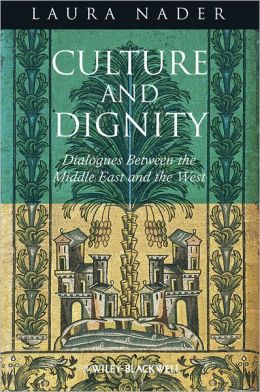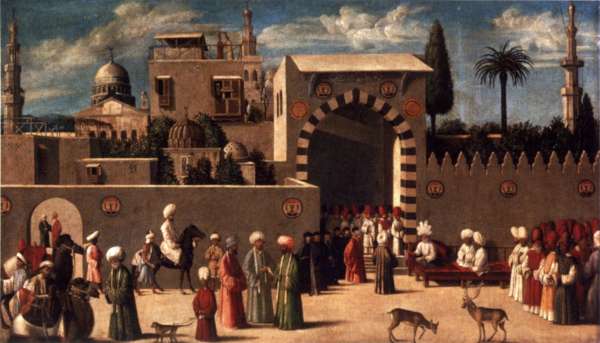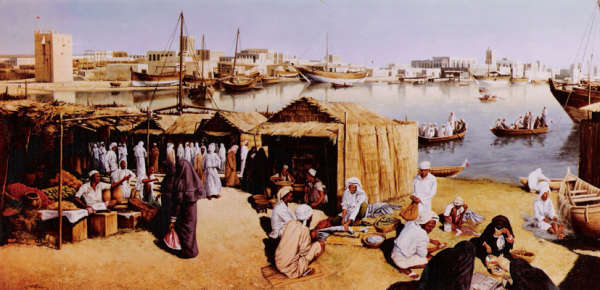Written in the aftermath of 9/11 and the subsequent invasions of Afghanistan and Iraq, this collection of essays by anthropologist Laura Nader is an attempt to write against the grain of current discourses that reify difference between the Middle East and the West. It is a plea to acknowledge the long history of interaction between these two regions and, in the process, to recognize our common humanity by placing dignity, mutual respect and humility at the centre of our relationship with those often portrayed as ‘barbarian others’.
Focusing on connections, similarities and cross-cultural fertilization processes, this ambitious book challenges common ideas that present differences in terms of civilizational threat.
In addition to documenting ‘dialogues between the Middle East and the West’, it advocates research endeavours that remain aware of the knowledge/power nexus in scholarship in order to avoid the pitfalls of a not-dead-yet Orientalism. It offers eclecticism and explicit comparisons as research methods most apt to capture the continuous social transformations that occur as a result of encounters and exchanges between and across cultures.
Chapter 2, ‘From Rifa ah al-Tahtawi to Said: Lessons in Culture and Dignity,’ documents, through the travelogues of 18th century Egyptian scholar Rifa ah al-Tahtawi and the writings of Georges Saliba and Edward Said, the ways in which power differentials in the experience of difference have been instrumental in producing specific representations of both the Middle East and the West. Discourses that portray the other in monolithic terms are never neutral attempts at capturing particular cultural patterns. Rather, like mirrors that reflect and frame reality, they mostly reveal something about ‘us’, about the implicit assumptions that guide our gaze and, perhaps more importantly, something about our unavoidable connectedness.

Chapter 3 unpacks the unstated consensus on which the discipline of anthropology has for long relied: namely, that cultures are bounded and can be placed on an evolutionary scale. That such ethnocentric narratives have supported colonial domination is a well-known fact: science is never politically neutral and one should remain wary of current appropriations of ethnographic research methods for market research or for military operations in Afghanistan and elsewhere. But as much as ‘ethnographic research can be devoid of anthropology’ (p. 72), ethnographic practices nevertheless remain deeply heterodox. By revisiting categories and showing the contemporaneity of the people they study, ethnographers offer a powerful contribution to theory and produce a form of knowledge with the potential to ‘connect humans rather than divide them’ (p. 76).
Chapter 4, ‘Orientalism, Occidentalism and the Control of Women’, argues that prejudices concerning the treatment of women of another society rule out asking questions about the situation of women in one’s own society. The adoption of such a ‘positional superiority’ (a central feature of ‘Orientalism’ according to Said) is a powerful means to manufacture consensus around the idea of a continuous and linear ‘progress’ in the area of gender equality in the West (compared to the Middle East where the situation of women is presented as ‘worse’) and, therefore, is a strategy that serves to control women everywhere.
Chapter 5 draws a refreshing comparison between American religious fundamentalism and corporate fundamentalism and its impact on parental loss of control in child rearing and the construction of childhood in general. While the notion of ‘fundamentalism’ is usually associated with religious developments taking place in the Middle East, more rarely is this category of analysis used to qualify the ways in which American corporate culture, with its ‘missionary-like zeal’ – a feature which may well have roots in the Judeo-Christian ethics – not only manufactures lifestyles, tastes and desires but also fractures families by commercializing childhood. ‘In this sense fundamentalism is as intimately connected to a type of economic system as it is to religious belief’ (p. 147).
Chapter 6 explores the ‘seeds of nonviolence’ in the Middle East such as the primary place of law in Islam, the importance of consensus, self-discipline, patience (‘sabr’) and mediation (‘wasta’), the central role of the family unit and notions of ‘honour and shame’: mechanisms of social control that have often functioned as coping strategies in contexts of colonial domination, imperialist interventions and dictatorial regimes.
Chapter 7 underscores the normative blindness and double standards that accompany certain human rights discourses, especially those manipulated by Western states eager to position themselves as yardsticks upon which achievements in this field should be measured. Chapter 8 is a call for anthropologists to break the silence on the multi-layered forms of hegemony endured in the Middle East and to offer a critique of the propaganda deployed to assert imperialist domination and corporate colonialism.
The lessons to learn from this outstanding book will be useful not only to anthropologists searching for means to revitalise the critical tradition of their discipline, but also to a broader audience eager to hear the untold story of East-West relations. In order to reverse the strategies of subordination devised by Euro-American powers, Nader invites us to take our inspiration from the early Middle-Eastern travellers who came to the West and wrote from within ‘a tradition of explicit and forthright comparison’ (p. 213), offering descriptions of ‘others’ in which possibilities of co-existence were explored.
Drawing from an eclectic sample of literature dealing with the global connections between the Middle East and the West, the author achieves a much needed – and very timely – intellectual ‘check-up’ and warns us against cultural framings that serve to sideline serious explorations of the roots and nature of human suffering. It is crucial for all those of us who are genuinely concerned with peace to liberate our imaginations from the myths and stereotypes that work to divide us.
Laura Nader, Culture and Dignity: Dialogues between the Middle East and the West, (Chichester: Wiley-Blackwell, 2013, 240 pp.)



